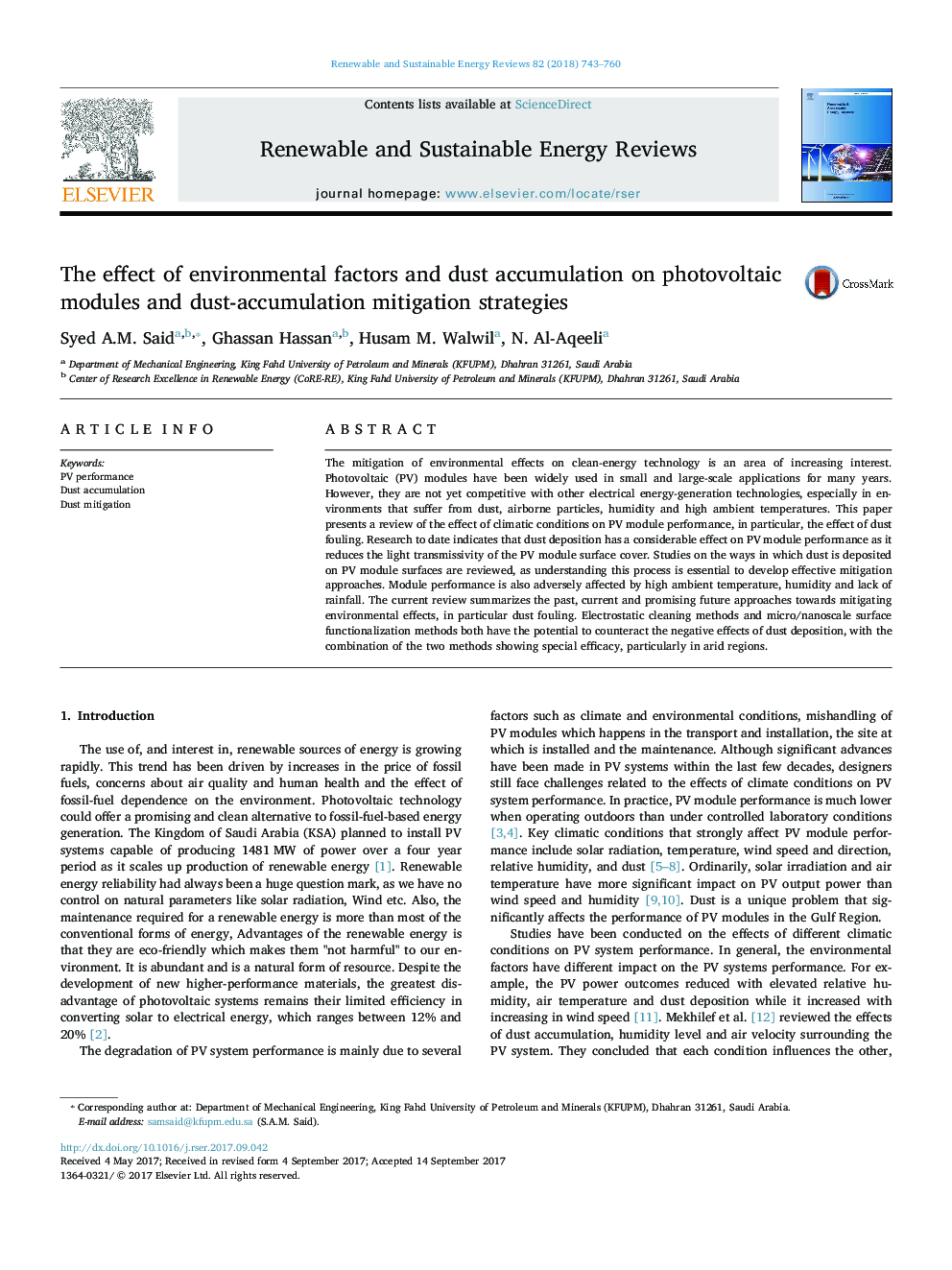| Article ID | Journal | Published Year | Pages | File Type |
|---|---|---|---|---|
| 5481902 | Renewable and Sustainable Energy Reviews | 2018 | 18 Pages |
Abstract
The mitigation of environmental effects on clean-energy technology is an area of increasing interest. Photovoltaic (PV) modules have been widely used in small and large-scale applications for many years. However, they are not yet competitive with other electrical energy-generation technologies, especially in environments that suffer from dust, airborne particles, humidity and high ambient temperatures. This paper presents a review of the effect of climatic conditions on PV module performance, in particular, the effect of dust fouling. Research to date indicates that dust deposition has a considerable effect on PV module performance as it reduces the light transmissivity of the PV module surface cover. Studies on the ways in which dust is deposited on PV module surfaces are reviewed, as understanding this process is essential to develop effective mitigation approaches. Module performance is also adversely affected by high ambient temperature, humidity and lack of rainfall. The current review summarizes the past, current and promising future approaches towards mitigating environmental effects, in particular dust fouling. Electrostatic cleaning methods and micro/nanoscale surface functionalization methods both have the potential to counteract the negative effects of dust deposition, with the combination of the two methods showing special efficacy, particularly in arid regions.
Related Topics
Physical Sciences and Engineering
Energy
Renewable Energy, Sustainability and the Environment
Authors
Syed A.M. Said, Ghassan Hassan, Husam M. Walwil, N. Al-Aqeeli,
